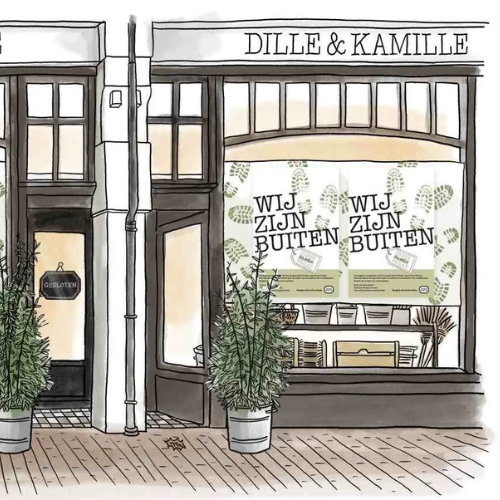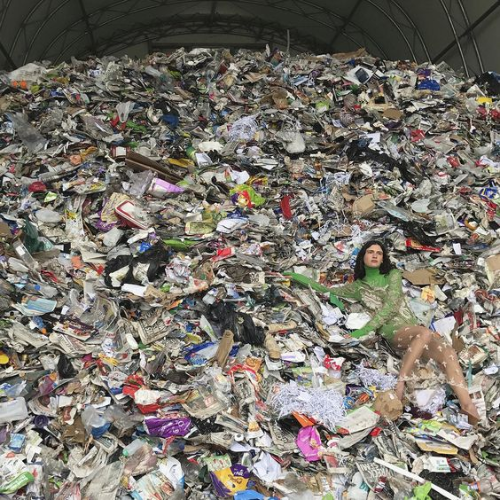The holiday season is approaching quickly, ushering in the highly anticipated Black Friday. Over the past few weeks, our inboxes have been flooded with advertisements and emails from fashion brands announcing significant discounts and extraordinary deals.
What started as a post-Thanksgiving tradition in the United States has now transcended across the border and evolved into a global phenomenon. People worldwide are eagerly positioning themselves behind their laptops to snatch the best deals before they are sold out. Many brands have even started a “Black Friday Week,” where they dropped the prices at the start of the week to make the most revenue.
As with each passing year, consumers are expected to surpass the previous year’s spending despite the increased cost of living.
As the day draws near, it becomes increasingly apparent that pursuing extreme discounts comes with considerable costs. It places an immense burden on our planet, and our environment and society suffer.
The Environmental Toll of Black Friday
The fashion industry, particularly the fast fashion sector, is at the forefront of Black Friday’s environmental impact. The fashion industry is already extremely polluting and exploitative. However, during Black Friday, the discount codes only intensify this. Fast fashion brands have huge sales to urge consumers to buy and keep up with the latest trends. In turn, retailers are putting out mass quantities of clothing to meet the consumer’s expectations. This all takes a devastating toll on the environment.
The Disposable Culture
One of the biggest problems of Black Friday is the huge waste generation. The enormous discounts urge many individuals to buy items they would not necessarily buy otherwise. Cheaply-made garments are often worn only a handful of times before being discarded and ending up in landfills, where they are left to decompose. According to Good Energy, the Green Alliance stated that up to 80% of items bought on Black Friday are thrown away after only a couple of uses, with some never being used. This overconsumption not only has a huge environmental impact but also strains personal finances.
Pollution and Emissions
Black Friday entails a surge in the consumption of products that must be manufactured and shipped. Typically, fashion items are produced in low-cost countries where factory pollution and emissions regulations are lax. In addition, the products have to be shipped worldwide to arrive at their destination. This leads to a substantial contribution of carbon emissions. The cumulative effect is a significant environmental impact, with Cleanhub reporting that Black Friday deliveries alone emit 429,000 tonnes of greenhouse gases into the environment.
The Social Toll of Black Friday
Black Friday also has a social impact. The intense pressure to produce mass quantities of clothing at high speeds to meet the heightened demand for the holiday season often leads to exploitative labor practices, where human rights are compromised in the pursuit of profit.
Sweatshop Conditions
As discussed earlier, fashion brands outsource production to countries with low wages and few regulations. Here, garment workers are forced to work long hours in unsafe and unhealthy conditions without earning a living wage. The urgency to keep up with the demands during the Black Friday rush worsens these already terrible conditions. And, of course, despite brands earning additional profits, the workers behind the clothes will not see a penny.
Pressure on Logistics Workers
The parcels purchased on Black Friday require swift delivery, placing considerable stress on the package, shipping, and delivery personnel. As reported by The Conversation, these individuals can face an elevated workload during the peak period of Black Friday, with workweeks stretching up to 60 hours compared to the standard 40-hour week. The same source highlights that these workers endure physical strain and are more likely to injure themselves during this demanding period. Additionally, there are heightened expectations regarding the productivity levels of these workers.
Safety Concerns in Stores
The sheer volume of eager shoppers rushing to grab the best deals poses a risk to public safety. Incidents of trampling, fights over items, and even altercations have happened during Black Friday (we all have seen the videos). As consumers seek to take advantage of discounts, the potential for injuries and property damage is troubling. As is the complete disregard for the store workers.
Tips for a More Sustainable Approach
Black Friday comes with significant costs to the environment, labor ethics, and social well-being. As consumers, it is therefore very important to reflect on the consequences of our purchases and consider more sustainable alternatives. Here are some tips on how to do that.
Plan, Plan, Plan
Instead of giving over to the impulse of mindless shipping, opt for a more sustainable approach. Plan your purchases in advance, focusing only on the items that you actually need. Let’s be honest: you do not need another glitter dress that you will only wear for one hour on New Year’s Day. The old one is just fine.
Shop Local
Planning on going shopping offline (you know, outside)? Shop at your local small boutiques and stores. This not only contributes to the growth of local businesses but also fosters community support. Additionally, purchasing locally-produced goods often carries a smaller environmental footprint than big brands.
Prioritize Sustainable Brands
An essential step to reducing the impact of Black Friday is to buy from shops renowned for their commitment to sustainability. Explore sustainable brands to align your purchases with your values.
Embrace Recycling
As Black Friday approaches, it often prompts a closet purge for many. Rather than discarding old clothes, consider recycling them. Donate to charitable organizations or pass them on to younger siblings or friends, ensuring your unwanted items avoid ending up in landfills.
Concept: Green Friday
In 2017, the French environmental organization Envie introduced the concept of Green Friday in direct response to the adverse effects of Black Friday on the climate and environment. This initiative has since evolved into a steadily expanding movement, offering an alternative perspective on consumption and discouraging unnecessary purchases.
Green Friday serves as a reminder to consumers that they bear responsibility for the choices they make and the subsequent environmental consequences of those choices.

Several brands have created their own events in support of Green Friday. Dille & Kamille, for example, are closing their doors on the 24th of November (both the online webshop and actual stores) and are helping to plant food forests in the Netherlands.
Sources
All pictures contain a link to their source, and all credits go to the rightful owners.
You can find the link to the header picture HERE





